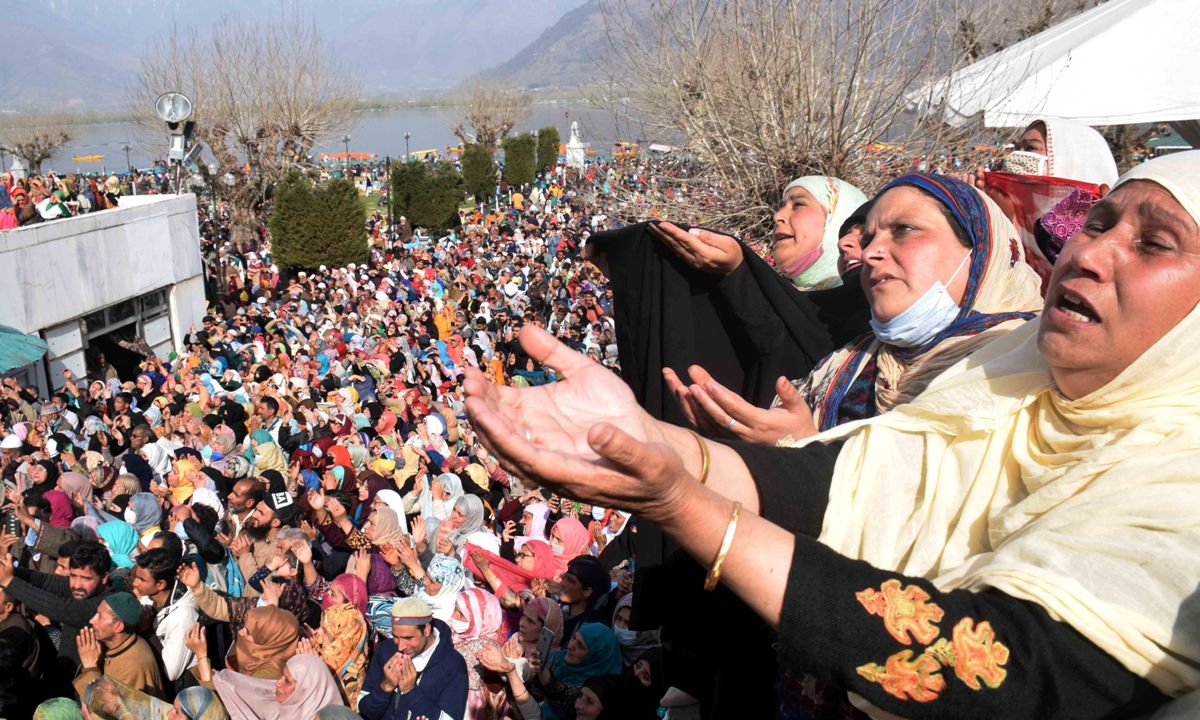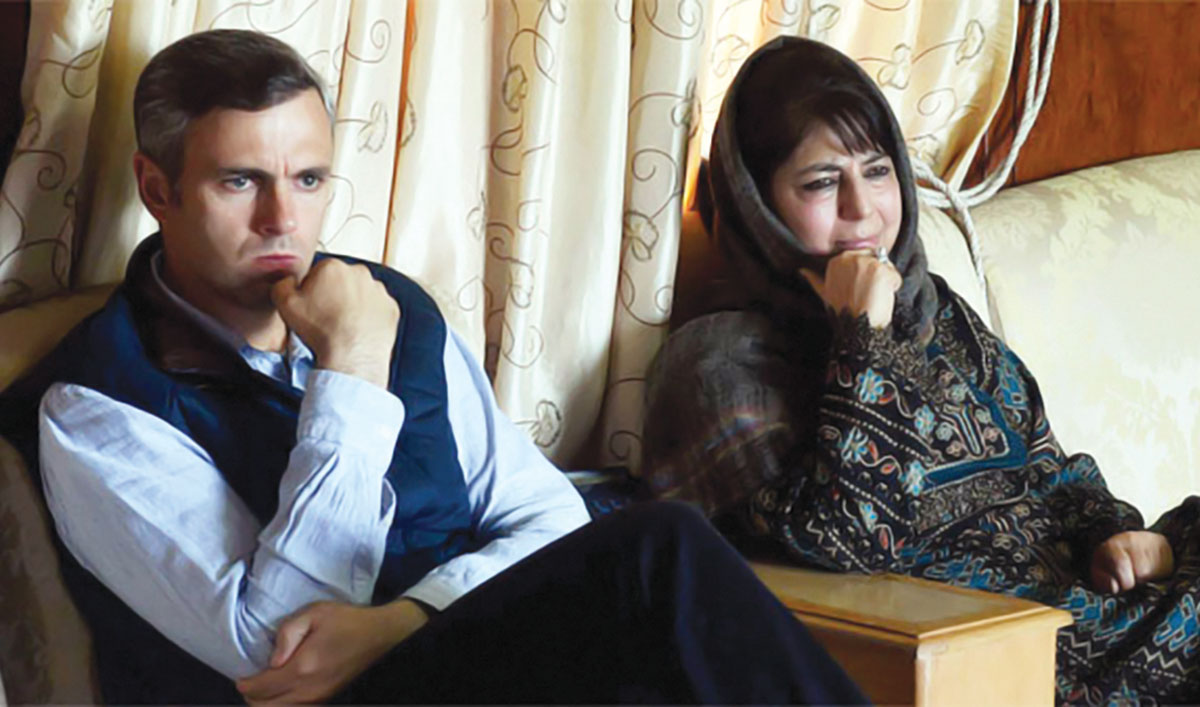by Muhammad Nadeem
Humans are emotional beings, and emotions work differently in our life. But what exactly do these emotions make us? We fear some emotions while fear is itself an emotion. We love some feelings while love is itself a feeling. Some hate to love, some, love, hate. Some are happy being sad. Some are sad being happy. We are involved in emotions and feelings; we can’t escape.

Everything happens for a reason. And whatever happens, brings an emotional touch with itself. Our feelings and emotions are dynamic. Sometimes words fail to do justice to describe what we are feeling.
In Islam, we believe that these emotions are an essential part of Allah’s creation. He has designed humans as emotional beings, and emotions serve as a means for us to experience and connect with the world around us. The Quran reminds us that Allah has created people in a particular nature (fitrah), and emotions are an intrinsic part of that nature (Quran 30:30). These emotions are neither good nor evil in themselves, but rather, it is how we respond to and manage them that determines our actions and character.
What are the gateways to emotions? What lets emotions modify our beings? Are these emotions already inside us, sleeping a deep sleep until an external stimulus wakes them up and scatter, surprise, sadden, or soothe us?
The teachings of Islam encourage us to seek knowledge and understanding, just as there are thousands of works available on the psychology of emotions. Everyday research studies find out something new about human emotions. But reading about emotions and experiencing them are completely different entities. The Prophet Muhammad (peace be upon him) emphasised the importance of seeking knowledge, and he said, “Seeking knowledge is obligatory upon every Muslim.” (Sunan Ibn Majah)
Humans are emotional beings, and emotions work differently in our life. But what exactly do these emotions make us? We fear some emotions while fear is itself an emotion. We love some feelings while love is itself a feeling. Some hate to love, some, love, hate. Some are happy being sad. Some are sad being happy. We are involved in emotions and feelings; we can’t escape. We go through emotions every single second of our life. Even when we say are numb, being numb is itself a feeling.
In Islam, we are taught to control our emotions and not let them control us. Prophet Muhammad (peace be upon him) advised us that the strong person is not the one who overcomes others with physical strength but rather the one who controls their emotions, especially in times of anger (Sahih al-Bukhari). Emotions themselves might not be inherently good or evil, but it is how we allow them to affect us and our actions that determine the outcome.
We taste new feelings every day. We are surrounded by feelings and emotions even when we are all alone. Emotions don’t always infuse inside us because of people. Nature is designed in such a manner that everything in it enables emotions to soothe our disturbed souls or disturb our peaceful souls. Every season has its effect on our feelings. Autumn is gloomy for some, summer is, happy and winter, sad. Isn’t that why we use these seasons as metaphors for our emotions to beautify our poetry? From the beauty of snow-clad mountains to the blasts of volcanoes: every element of nature is so emotionally connected with and within us that it seems we are all part of this universe communicating through our emotions and feelings.
Islam encourages to recognise and appreciate the beauty around us and be grateful for Allah’s creations. Quran verse 16:14 reminds us: “And He has subjected to you whatever is in the heavens and whatever is on the earth – all from Him. Indeed, in that are signs for a people who give thought.”
Sometimes we see something so beautiful that ignites a flame lost in the ashes. These flames infuse a disturbance in our being. We begin to realise something that was never there before. At times, a thing of beauty can scatter all that is within. One single glimpse of someone, a certain fragrance, or a certain style of someone’s walk can leave you sleepless for nights.
As humans, we expect and hope. If we don’t, we stop living. To live is to be broken, only to stand up again. In Islam, we are encouraged to be patient and endure in the face of adversity. Quran verse 2:155 reminds us: “And We will surely test you with something of fear and hunger and a loss of wealth and lives and fruits, but give good tidings to the patient.”
We should not allow ourselves to suffer. Suffering can be inevitable especially when you are at war with emotions. To suffer is one thing, and to choose to suffer is another. We must suffer beautifully. Suffering must make us beautiful. It can only happen with the patience that Islam teaches us.
What we feel is beautiful can be ugly for others. In defining beauty and ugliness, or for that matter good or evil, right or wrong – our emotions play an important part. If by doing something awful we feel emotionally good, we might start feeling that awful thing as beautiful. Beauty, in itself, can be beautiful. It does not need any definition for being so. If we fail to recognise it, it is our fault.
As Muslims, we should contemplate what we feel and the ways we feel. We should not be afraid of our feelings. These feelings might embarrass us at times. It can seem so entangled and twisted and confusing and so dreadful that to carry on will be hard. But once we learn from the experience, we should be prepared to face it again, and this time, with a better understanding. We can’t be constantly at war with our feelings. Only experiencing these emotions will make us stronger, not, not learning or running away from them.

Islam acknowledges the significance of emotions and feelings in human life. We should not fear them but rather embrace them as a means of experiencing and understanding and getting closer to Allah.
In Islam, suffering is seen as an inevitable part of the human condition. However, the attitude that Muslims are called to take towards suffering is one of patience, endurance, and hope. The concept of “suffering beautifully” captures the Islamic ideal of maintaining faith and dignity even in the most difficult of trials.
The Quran and Hadith provide powerful examples of prophets who endured suffering with stoic patience. Prophet Musa was forced into exile after accidentally killing an Egyptian, but he maintained his faith in Allah despite this hardship. As the Quran recounts, “So he escaped from there, fearful and vigilant. He pleaded, ‘My Lord, deliver me from the wrongdoing people'” (28:21).
The Quran narrates Prophet Musa’s story in several places, highlighting his patience and trust in Allah’s plan. In Surah Al-Qasas (28:22-24), when Musa inadvertently killed an Egyptian, he immediately sought Allah’s forgiveness and turned to Him in repentance. Despite facing exile and uncertainty, Musa exhibited unwavering patience and reliance on Allah’s wisdom.
Additionally, Surah Ta-Ha (20:46-49) recounts the encounter between Musa and Pharaoh, demonstrating Musa’s composure and resilience even in the face of Pharaoh’s arrogance and threats. Musa’s patience remained steadfast, bolstered by his firm belief in Allah’s guidance and support.
Prophet Yaqoob suffered the absence of his beloved son Yusuf, not knowing if he was alive or dead. But he persevered, stating “I complain of my anguish and sorrow only to Allah” (12:86). His patience was eventually rewarded by the reunion with his long-lost son.
Prophet Yusuf himself faced trial after trial, being thrown into a well as a child by his own brothers, and later being imprisoned for years for a crime he did not commit. But he endured these ordeals while upholding his faith in Allah, who eventually rewarded him for his perseverance. As the Quran states about Yusuf’s imprisonment, “He said, ‘My Lord, prison is more beloved to me than that to which they call me'” (12:33).
The Prophet Muhammad (SAW) embodied beautiful patience throughout his prophetic mission, in the face of persecution, grief, injury and loss. When his enemies placed thorns in his path and dumped filth outside his home, he cleaned it up quietly and prayed for them. When his beloved son Ibrahim died in infancy, he wept tenderly but accepted it as Allah’s will. As Aisha reported, if any calamity befell the Prophet, he would say “Inna lilLahi wa inna ilayhi raji’un” (To Allah we belong and to Him, we shall return) and pray for forgiveness (Bukhari).
Through his exemplary patience, the Prophet showed us how to maintain dignity and grace despite suffering.

The Quran also provides the example of Maryam, the mother of Prophet Isa (Jesus). When the pains of childbirth drove her to cling to a palm tree, she cried out, “Oh, I wish I had died before this and was in oblivion, forgotten.” (19:23). However, Allah responded to her, “Do not grieve; your Lord has provided beneath you a stream. And shake toward you the trunk of the palm tree; it will drop upon you ripe, fresh dates.” (19:24-25). Despite her anguish, Allah provided her relief and rewards for her patience.
Moreover, Allah honoured Maryam by dedicating an entire chapter of the Quran (Surah Maryam) to recount her story. Whenever Prophet Isa is mentioned in the Quran, his mother Maryam is mentioned along with him, cementing her name and story till the end of time. Through her patience and faith, Maryam remains an eternal example of beautifully enduring hardship.

The Quran urges believers to emulate the patience of the prophets, stating “So be patient, as the messengers with firm resolve were patient” (46:35). By following their example, Muslims can thus transform trials into opportunities for spiritual purification and closeness to the Divine. Suffering can illuminate the true nature of this worldly life, and anchor one’s hopes in the eternal life to come.
By seeking knowledge, self-control, and gratitude, we can navigate our emotions in a way that aligns with Islamic principles and brings us closer to Allah. As we go through the journey of life, experiencing emotions with faith and understanding will ultimately make us stronger and more resilient individuals. Remembering that Allah has created us with these emotions for a reason can help us find purpose and beauty in even the most challenging moments of our lives.
(Author is a reader and writes about what he reads. Ideas are personal)















